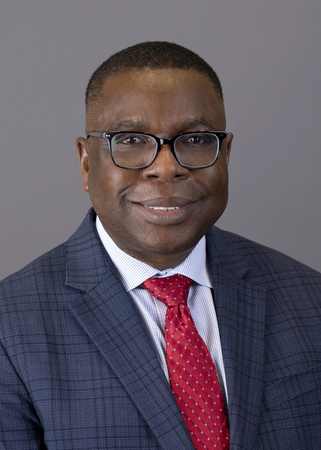

Author: Caroline Seydel
Diversity within the research community benefits everyone. But scientists from minority groups face significant barriers in their careers because of disparities among the rates at which research grants are awarded. Working with a grant writing coach can help non-white and female researchers improve their chances of receiving funding, according to a new study from the NIH published in PLOS One.
Led by Kolawole S. Okuyemi, MD, MPH, professor and chair of the Department of Family and Preventive Medicine at the University of Utah School of Medicine and senior director for diversity and inclusion at Huntsman Cancer Institute, the program matched 545 investigators from 187 different institutions nationwide with grant writing coaches. Among those who submitted R01 applications, 22 percent received awards, a success rate that exceeded the overall NIH funding rate for new R01s.
The project arose from a 2011 analysis of grants funded by the NIH, which revealed that—even after controlling for qualifications like educational background, publication record, and research awards—Black applicants were 10 percentage points less likely to receive funding. This documentation of funding disparities prompted concern among many in the biomedical research community.
“It’s hard enough to get trained and get the appropriate expertise to write grants,” said Okuyemi. “Why are they not getting funded?”
As a way to strengthen the resource infrastructure available to researchers from underrepresented groups, the NIH launched an initiative in 2014 called the Diversity Program Consortium (DPC). One of the DPC’s programs is the National Research Mentoring Network (NRMN), which supported projects on professional development, mentor training, and mentorship and networking.
"..it’s not a talent issue,” Okuyemi said. “When we level the playing field, women and minority scientists can successfully compete."
Okuyemi led the professional development project, which tested the effectiveness of grant writing coaches. The project set up six different models of coaching, four for investigators with little grant writing experience, and two for those who had a bit more experience. Depending on the model, coaches were matched with up to four participants in small groups.
The professional development project included co-investigators from other institutions such as the University of Minnesota, Northwestern University, Morehouse School of Medicine, University of North Texas Health Sciences Center, University of Colorado, and Washington State University.
All six models began with a two- or three-day in-person session, during which the coaches and the participants made personal connections and spent time reviewing and discussing the drafts. Over the following months, the coaching groups met virtually or, in some cases, in person to go over personalized feedback on their drafts.

“It’s not something you learn at graduate school, and it’s not something you learn by just attending a seminar,” Okuyemi said. “This is a complex set of skills to learn, and it takes a much longer period of engagement. That’s why we developed this model of intensive engagement.”
The minimum length of the program is four to five months, which sets it apart from traditional grant writing tutorial programs and often fit into a day or weekend “boot camp” model. Yet despite the intense and fairly long-term commitment, the team had no trouble recruiting experienced investigators to serve as coaches.
“The response was huge,” Okuyemi said. “Folks were troubled by the publication showing that there’s the possibility of bias within the NIH grant review system. Being part of a program geared toward addressing that generated a lot of enthusiasm and interest because people wanted to be part of the solution.”
Of the participants in the program, 59 percent submitted a grant. Some weren’t quite ready at the end of the program, and some chose to refocus their research question. The ideal, of course, is that every participant submits a grant. Okuyemi said that the next phase, recently funded by a five-year award by NIH, will expand the mentoring component beyond writing and editing skills to include engagement of mentors from participants’ home institutions and coaching opportunities over an extended period of time.
“The most important take-home message is that it’s not a talent issue,” Okuyemi said. “When we level the playing field, women and minority scientists can successfully compete.”